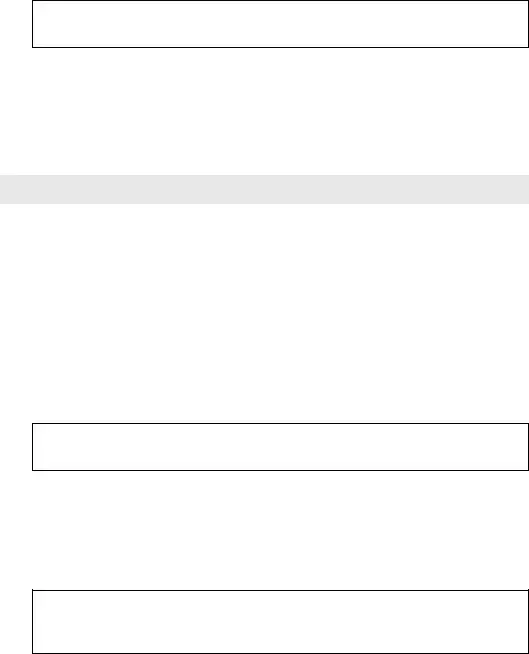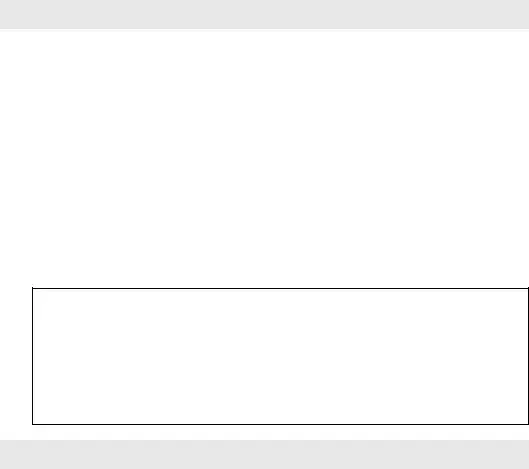Understanding the various permits and decals offered by the Department of Motor Vehicles (DMV) is crucial for those needing to maneuver through vehicle registration procedures without the typical full registration. These permits, primarily designed for specific, temporary uses, range from the Vehicle Moving Permit, which allows for the one-day movement of an unregistered vehicle, to more peculiar ones like the Clean Air Vehicle Stickers or decals for vehicles with wheelchair lifts or carriers. Each of these permits has its unique set of rules, eligibility criteria, and application procedures, aiming to accommodate various circumstances where temporary movement or identification of a vehicle is necessary. For instance, the Vehicle Moving Permit is notably handy for moving an unregistered vehicle from a dealer to a repair shop or from one storage location to another without the need for full registration. On the other hand, the One Trip Permit facilitates a single journey for an unladen vehicle either within California or from outside the state into California. Temporary Operating Permits (TOPs) serve as a stopgap for vehicles that have cleared all fees but are waiting on license plates or registration stickers, with specific provisions even for vehicles that fail biennial smog tests. Additionally, for non-residents or vehicles in transit, permits like the Nonresident Commercial Vehicle Trip Permit or the Foreign Resident In-Transit Permit ensure compliance with California's vehicle laws during short stays or journeys within the state. These permits and decals underscore the DMV's efforts to balance regulatory requirements with practical solutions for vehicle owners and operators facing transitional situations.
| Question | Answer |
|---|---|
| Form Name | Dmv Moving Permit |
| Form Length | 17 pages |
| Fillable? | No |
| Fillable fields | 0 |
| Avg. time to fill out | 4 min 15 sec |
| Other names | one day moving permit, permit california one, california vehicle moving permit pdf, dmv moving permit |
|
PERMITS AND DECALS |
25 |
VEHICLE INDUSTRY REGISTRATION PROCEDURES |
||
|
Title |
Page |
|
|
|
|
|
|
25.000 |
Introduction |
|
|
|
|
25.005 |
Vehicle Moving Permit |
|
|
|
|
25.010 |
One Trip Permit |
|
|
|
|
25.015 |
Temporary Operating Permit |
|
|
|
|
25.020 |
Laden Commercial |
|
|
|
|
25.025 |
Nonresident Commercial Vehicle Trip Permit |
|
|
|
|
25.030 |
Temporary Nonresident Commercial Registration |
|
|
|
|
25.035 |
California Use Fuel Tax Trip Permit (BOE 123) |
|
|
|
|
25.040 |
Temporary Registration for an Exempt School Bus |
|
|
|
|
25.045 |
Temporary Registration for |
|
|
|
|
25.050 |
Nonresident Daily Commuter Permit |
|
|
|
|
25.055 |
Foreign Resident |
|
|
|
|
25.060 |
Motorcycle Transportation Permit |
|
|
|
|
25.065 |
Zero Emissions Vehicle (ZEV) Parking Decal |
|
|
|
|
25.070 |
Clean Air Vehicle Stickers |
|
|
|
|
25.075 |
Window Decals for Vehicles with Wheelchair Lifts or Carriers |
|
|
|
|
VEHICLE INDUSTRY REGISTRATION PROCEDURES |
DECEMBER 2009 |

Page |
PERMITS AND DECALS |
|
|
Permits And Decals
25.000 Introduction
Permits are generally issued in lieu of regular registration. Decals are generally issued for identification for a specific reason, such as zero emissions. Decals do not replace registration of any type.
25.005 Vehicle Moving Permit (CVC §4002)
The department may issue a no fee Vehicle Moving Permit (REG 172) valid for one day only for movement of a vehicle in accordance with CVC §§4002 and 11716.
•Registration is not required for a vehicle moved or operated under a permit issued by the department.
•A
•The permit must be obtained from DMV before the vehicle is moved.
When Vehicle Moving Permit May Be Issued
This permit may be issued:
•For movement of an unregistered vehicle other than a trailer coach with Planned
•To move or operate a vehicle not previously registered from a dealer’s, distributor’s, or manufacturer’s place of business to a place where essential parts of the vehicle are to be altered or supplied.
•To move a vehicle which is not required to be registered or have a PNO status from one place of storage to another.
—Vehicles seized by a repossessor can be included in this category, if it is determined how and where the vehicle is to be moved.
•To move a vehicle to or from a garage or repair shop for the purpose of repairs or alteration.
•To move a vehicle for the purpose of dismantling or wrecking and permanent removal from the highways.
•To move a vehicle from one place to another for the purpose of:
•For a vehicle on which construction has not been completed.
•By a manufacturer, remanufacturer, transporter, distributor, or dealer, in the course of business, to move an unregistered vehicle from a vessel, railroad depot, or warehouse to a warehouse or salesroom (CVC §11716).
DECEMBER 2009 |
VEHICLE INDUSTRY REGISTRATION PROCEDURES |

PERMITS AND DECALS |
Page |
|
|
25.005 Vehicle Moving Permit (CVC §4002), continued |
|
This permit cannot be issued if:
•Fees are due.
•The registration for a vehicle subject to PNO requirements has expired and a PNO is not on file.
•The vehicle has been impounded and fees are due.
NOTE: The permit may be issued if all fees due are paid after impoundment.
Additional Information Regarding REG 172 Permit Usage
•Vehicle moved on a REG 172 in conformance with the permit restrictions indicated above does not have to be unladen.
For example:
—A REG 172 may be used to move a boat trailer and the boat stored on the trailer from storage to storage.
The permit cannot be used to move a boat trailer when the boat will be picked up en route from storage to storage; this type of operation requires that the trailer be registered.
—A REG 172 used to move an unregistered truck transporting a perishable cargo would be a violation of the special moving permit restrictions, since a perishable cargo would not be stored on an unregistered truck.
•When evidence of a permit is required for a registration application and the permit is lost, a Statement of Facts (REG 256) must be submitted with the application giving:
—the name of the field office that issued the permit,
—the approximate date it was issued, and
—the date(s) on which movement of the vehicle was authorized.
•A One Trip Permit (REG 172) may be used to move a crane under the provisions of the permit.
—However, movement to or from a job site does not constitute storage to storage; a crane must be registered for such movement.
25.010 One Trip Permit (CVC §4003)
A One Trip Permit (REG 402) is available from the department and may be used in lieu of California registration for movement of any vehicle except a crane.
•The permit must be posted on the windshield or other prominent place and must identify the vehicle being moved.
•The permit must be obtained prior to any movement of the vehicle that would require it to be registered.
VEHICLE INDUSTRY REGISTRATION PROCEDURES |
DECEMBER 2009 |

Page |
PERMITS AND DECALS |
|
|
25.010 One Trip Permit (CVC §4003), continued
•The permit is valid for movement of an unladen vehicle for one continuous trip from a place:
—within California to another place within or outside of California.
—outside of California to a place within California.
•A vehicle, for one round trip from one place to another, for the purpose of participating as a vehicular floats or display in a lawful parade or exhibition.
—The total round trip cannot exceed 100 miles and must be completed within 60 days.
NOTE: A motor vehicle may tow another unladen vehicle if both vehicles carry a One Trip Permit.
•Permits may be purchased in bulk from the department.
—Each permit is valid for only one vehicle and one continuous trip.
—Because of the restrictions placed on the use of the One Trip Permit, it may be difficult to determine if a One Trip Permit is valid for a specific operation.
Permitted Uses of the One Trip Permit
In addition to the above information, the following information is provided. A One Trip Permit is valid for:
•Moving a new or used unregistered vehicle from a dealer’s place of business when the fees expired in dealer inventory and the vehicle has not been operated as to cause fees to become due.
•Moving an unladen commercial motor vehicle for one of the purposes specified above, with another vehicle mounted “piggyback” style on it so that either the front or rear wheels of the mounted vehicle rest upon the ground and support a portion of the weight of the mounted vehicle.
—A permit is required for the mounted vehicle if it is not properly registered.
NOTE: The vehicle is laden if none of the mounted vehicle’s wheels are resting on the ground, and cannot be operated with a One Trip Permit.
•Operation of a trailer coach, which is either:
—owned by nonresident military personnel.
—part of a dealer’s inventory.
—purchased by a nonresident who is taking it out of California.
NOTE: A nonresident may bring an unregistered trailer coach into California on a One Trip Permit, but registration becomes due when it arrives at its destination unless it is exempt from registration.
DECEMBER 2009 |
VEHICLE INDUSTRY REGISTRATION PROCEDURES |

PERMITS AND DECALS |
Page |
|
|
|
|
25.010 One Trip Permit (CVC §4003), continued |
|
|
|
|
|
|
Forbidden Uses of the One Trip Permit |
|
|
|
|
A One Trip Permit cannot be used for:
•Operation of a loaded commercial vehicle unless the vehicle is being moved to participate in a parade or display.
•Travel by a roundabout or indirect route. The trip must be made by the most direct route.
•Movement of a trailer coach owned by a California resident since presence of the trailer in California requires registration.
•Any movement of a crane (CVC §4003) or any vehicle requiring an oversize permit issued by Department of Transportation (CVC §35780).
25.015 Temporary Operating Permit (CVC §4156)
The Temporary Operating Permit (TOP/REG 19F) with a validating sticker (REG 19S) is issued by the department in very limited and specific instances for operation of a vehicle when all registration fees have been paid, but license plates and/or stickers have not been issued.
•Payment of use tax is usually not required in order to obtain a REG 19F as long as all other fees have been paid.
•A Temporary Operating Permit (REG 19F/19S) issued for vehicles that have failed the biennial smog test will, in most cases, require a $50 fee.
•A REG 19F/REG 19S may be issued for other purposes based on DMV policy.
Failed Biennial Smog Certification TOP
The following applies to the issuance of a TOP (REG 19F/19S) when a biennial smog certification failed:
•The vehicle owner must present the failed smog test report as evidence that the vehicle failed a biennial smog certification when requesting a TOP.
•A $50 fee is due when requesting a TOP for the purpose of obtaining a biennial smog certification.
•The TOP may be valid only for:
—60 days from the expiration date of the registration of the vehicle, or
—60 days from the date that the vehicle is removed from Planned Non- Operation (PNO).
For Example: A vehicle registration expired or was removed from PNO status on 03/15/2009. The customer presents evidence the vehicle failed smog certification on 04/10/2009.
A TOP valid until 05/15/2009 may be issued. If the customer presents evidence of the smog failure after 05/15/09, a TOP cannot be issued.
VEHICLE INDUSTRY REGISTRATION PROCEDURES |
DECEMBER 2009 |

Page |
PERMITS AND DECALS |
|
|
25.015 Temporary Operating Permit (CVC §4156), continued
Failed Biennial Smog Certification TOP, continued
•Only one biennial smog TOP can be issued to the same vehicle within a two- year period.
•No TOP will be issued if proof of insurance is required and has not been submitted.
TOP Fee Waiver
The $50 TOP fee can only be waived if the owner presents a Consumer Assistance Program (CAP) letter from the Bureau of Automotive Repair (BAR) indicating the owner qualifies for repair assistance as a
•CAP eligibility qualifications are based on income guidelines established by the BAR. Qualifying customers must present a CAP approval letter to be eligible for a TOP fee waiver.
•The approval letter must indicate a $20 BAR
•Letters indicating a $0 or any other amount of
•A refund cannot be issued if the letter is presented after the $50 fee is assessed and a TOP issued.
Issuance of TOP for Other Reasons
•A
—An application for registration of a nonresident vehicle.
—When the vehicle must be referred to the California Highway Patrol (CHP) for inspection/or assignment of the vehicle identification number (VIN).
—For registration of a vehicle subject to Federal Heavy Vehicle Use Tax (FHVUT).
NOTE: A commercial vehicle owner having difficulty filing the FHVUT may be issued a
—For a vehicle impounded after the registration fees have been paid (unless biennial smog is required).
—When the DMV office manager or designee determines it is appropriate.
•A TOP shall not be issued until proof of insurance is submitted, if required for the transaction.
—An incomplete application (RDF) receipt is not a permit. It does not convey authority to drive, move, or leave a vehicle standing.
DECEMBER 2009 |
VEHICLE INDUSTRY REGISTRATION PROCEDURES |

PERMITS AND DECALS |
Page |
|
|
25.015 Temporary Operating Permit (CVC §4156), continued |
|
Issuance of TOP for Other Reasons, continued
—No TOP will be issued if proof of insurance is required and has not been submitted.
•A
Special TOP for Disaster Relief Work Vehicles (CVC §4005)
A Temporary Operating Permit (REG 19F/19S) may be issued to an unregistered vehicle needed for disaster relief work in a disaster area.
•The permit is issued only if the Department of Transportation (CALTRANS) or the responsible local authority has determined that the vehicle is necessary for such purposes and is valid only during the period of a state of emergency, as proclaimed by the Governor under the provisions of the California Emergency Services Act.
•A Statement of Facts (REG 256) stating these conditions must be submitted to the department prior to issuance of the permit.
25.020 Laden Commercial
A manufacturer, dealer, or carrier located in a state having a reciprocity agreement with California may purchase a Laden Commercial Trailer One Trip Permit (REG
43)which authorizes movement of a laden new (never registered in any state) or used (not currently registered) commercial trailer or
•The movement must be one continuous trip from the place of manufacture for a new vehicle, or from the place of dispatch or entry into this state for a used vehicle, to a place where the vehicle will be offered for sale.
•The permit must be completed prior to operation on a highway and must be carried on the trailer to which it applies.
—The manufacturer or dealer who was issued the permit may allow a third party to move or operate the vehicle.
•The permit is valid for five days.
•The permit shall not be granted more than once without the sale and registration of the trailer or
25.025 Nonresident Commercial Vehicle Trip Permit (CVC §§4004 and 9260)
A Nonresident Commercial Vehicle Trip Permit (REG 41) may be purchased for operation of a nonresident commercial motor vehicle registered in a state having a reciprocity agreement with California if the vehicle is to be operated so as to otherwise require California registration.
VEHICLE INDUSTRY REGISTRATION PROCEDURES |
DECEMBER 2009 |

Page |
PERMITS AND DECALS |
|
|
25.025 Nonresident Commercial Vehicle Trip Permit (CVC §§4004 and 9260), continued
•The permit:
—Must be purchased prior to any operation that requires payment of California fees.
—Is valid for four consecutive days.
—Is valid for laden operation on an interstate or intrastate basis.
•Blank permits may be purchased in volume from any DMV office.
—The original copy of the permit must be carried in a receptacle outside the vehicle.
—The fuel tax permit number for a vehicle powered by a fuel other than gasoline must be entered on the trip permit prior to use or it is not valid.
—The duplicate copy is the customer copy (IRP operators must retain this copy for a period of four years).
—The privilege of securing and using Nonresident Commercial Vehicle Trip Permits shall not extend to:
»»Vehicles based in California and operated by a person having an established place of business in California.
A vehicle shall be considered to be based in California if it is primarily operated or dispatched from, or garaged, serviced, or maintained at, a site with a California address.
»»Vehicles last registered in Mexico or the Canadian Provinces of Newfoundland or Saskatchewan.
EXCEPTION: Saskatchewan
California on a Nonresident Commercial Vehicle Trip Permit (REG 41).
25.030 Temporary Nonresident Commercial Registration (CVC §§4004 and 9260)
A nonresident commercial motor vehicle registered in a foreign jurisdiction that has reciprocity with California may, in lieu of regular registration, secure temporary California registration for a period of not to exceed 90 days.
The privilege of securing and using a
•Vehicles based in California and operated by a person having an established place of business in California.
—A vehicle shall be considered to be based in California if it is primarily operated or dispatched from, or garaged, serviced, or maintained at, a site with a California address.
•Vehicles last registered in Mexico or the Canadian Provinces of Newfoundland or Saskatchewan.
EXCEPTION: Saskatchewan
California on a Commercial Trip Permit.
DECEMBER 2009 |
VEHICLE INDUSTRY REGISTRATION PROCEDURES |

PERMITS AND DECALS |
Page |
|
|
25.030 Temporary Nonresident Commercial Registration (CVC §§4004 and 9260),
continued
Application Requirements
•A completed Application for Nonresident Commercial Registration
(REG 471), with the IFTA account number or fuel tax permit number (issued by the Board of Equalization) entered in the “Diesel Fuel Permit Number” on the application, if the vehicle is powered by diesel.
—If a customer does not have a valid IFTA account on a diesel vehicle, a Fuel Trip Permit (BOE 123) must be purchased.
—A new BOE 123 must be purchased each time the vehicle leaves and reenters California during the
•Valid
•Fees assessed at the rate of one quarter (3 months) of each of the
NOTE: Any trailer or semitrailer identified in paragraph (1) of subdivision
(a)of CVC §5014.1 that enters the state without a currently valid license plate issued by California or another jurisdiction shall be immediately subject to full Permanent Trailer Identification (PTI) fees.
If a vehicle has been in California for more than 20 days, but the fees have been due for less than 20 days, a Statement of Facts (REG 256) explaining why fees were not due previously is required.
Renewal of a Temporary Nonresident Commercial Registration
•The application requirements for renewal are the same as above.
•If more than 20 days have elapsed since the expiration date of the previous temporary registration, the vehicle must be registered with full year registration, unless the applicant can submit a Statement of Facts (REG 256), indicating the vehicle has not been operated to cause full fees to be due after the expiration date.
25.035 California Use Fuel Tax Trip Permit (BOE 123)
A temporary California Use Fuel Tax Trip Permit (BOE 123) may be purchased from the department in lieu of obtaining the regular Board of Equalization fuel tax permit required for operation of nonresident commercial vehicles powered by a fuel other than gasoline.
•BOE 123 permits may be issued to California resident users and interstate users. A fee is due for each permit.
•The original copy of the permit must be carried in the vehicle and the pink copy must be mailed to:
State Board of Equalization
PO Box 942879
Sacramento, CA
VEHICLE INDUSTRY REGISTRATION PROCEDURES |
DECEMBER 2009 |

Page
25.040 Temporary Registration for an Exempt School Bus (CVC §§5010 and 9266)
When a motor vehicle leased to a school district for use as a school bus (as defined in CVC §545) temporarily reverts to the possession and control of the lessor and thereafter becomes subject to registration, the lessor may, as an alternative to registration, secure a temporary permit to operate a vehicle for one or more calendar months. The exempt plates will continue to be displayed on the vehicle.
Application Requirements
•A School Bus Registration or Permit Application (REG 123) with all information needed to properly identify the exempt vehicle (use the information on the current Registration Card).
—Enter the Exempt plate number and expiration date at the top of the application.
•A Statement for Securing Commercial Registration (REG 590).
•Weight certificate if the vehicle weighs less than 10,001 pounds. If the vehicle weighs 10,001 pounds or more, the estimated unladen weight is required and must be shown on a Statement of Facts (REG 256).
•Declaration of Gross Vehicle Weight/Combined Gross Vehicle Weight (REG 4008) completed and signed by the owner if the vehicle weighs 6,001 pounds or more unladen.
•Fees computed at the rate of 10% of the annual fee for each calendar month or fraction of a month.
—The fees are based on either the Vehicle License Fee (VLF) classification shown on the exempt registration card or the vehicle’s original cost or its current cost/value, whichever is available.
—The fees are not prorated for any fraction of a calendar month and no penalty is assessed.
—The expiration date is always the last day of the month.
25.045 Temporary Registration for
A
The temporary registration must be obtained prior to any commercial operation, or the bus becomes subject to regular commercial registration for a
Application Requirements
•A School Bus Registration or Permit Application (REG 123).
—Obtain the necessary information from the current Registration Card.
•Weight fees, if the vehicle will be used to transport persons or property for compensation or profit.
DECEMBER 2009 |
VEHICLE INDUSTRY REGISTRATION PROCEDURES |
